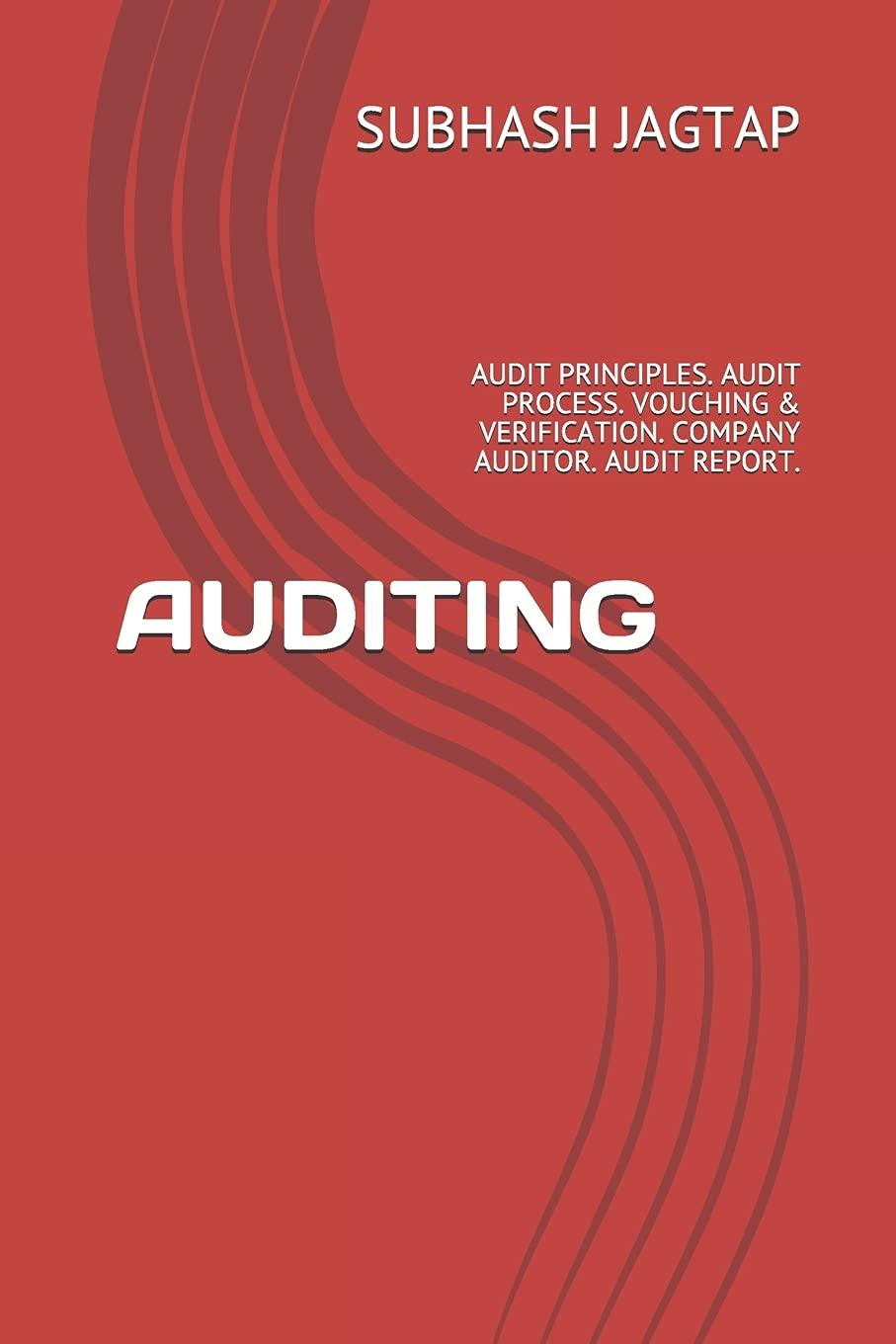Question
QUESTION 14 The following is the priority sequence in which liquidation proceeds will be distributed for a partnership partnership drawings, partnership liabilities, partnership loans, partnership
QUESTION 14
- The following is the priority sequence in which liquidation proceeds will be distributed for a partnership
|
| partnership drawings, partnership liabilities, partnership loans, partnership capital balances | |
|
| partnership liabilities, partnership loans, partnership capital balances | |
|
| partnership liabilities, partnership loans, partnership drawings, partnership capital balances | |
|
| partnership liabilities, partnership capital balances, partnership loans |
5 points
QUESTION 15
- In a lump-sum liquidation of a partnership
|
| all assets are paid to the partners based on their initial contribution, with the oldest partnering being paid back first | |
|
| all assets are paid to the partners based on an equal distribution regardless of when the partner was admitted to the partnership | |
|
| all assets must be realized before any distribution can be made | |
|
| all assets are paid to the partners, at the same time, based the fair market value at the time they were initial donated to the partnership |
5 points
QUESTION 16
When a partner withdraws from a partnership and the remaining partners acquire that interest
|
| this may have an effect on the liquidity of the partnership
| |
|
| this will increases the cash flow into the partnership
| |
|
| this will always create goodwill for an amount equal to the withdrawing partners original interest in the partnership
| |
|
| this will cause all assets to be written down to offset the acquisition cost of the withdrawing partners interest at the time of the withdraw
|
5 points
QUESTION 17
You are the controller of A company that has just recently merged with B company. You are asked to communicate with top management on how you would account for the merger. While you are doing some research you find an old accounting textbook left on the bookshelf by your predecessor who retired after 30 years. Based on your readings in this book you are thinking about using the pooling method for this transaction. This method
|
|
requires assets only to be recorded at historical costs and liabilities at fair value
| |
|
|
requires all assets to be recorded at historical cost
| |
|
|
requires all assets and liabilities to be recorded at fair value
| |
|
|
is no longer an acceptable method
|
5 points
QUESTION 18
You are the controller of Parent company and have been asked to communicate your findings on a situation that is in the best interest of the company. Parent company would like to sell bonds to obtain financing. Parent company owns an 80% interest in Subsidiary company and interest rates are down. Subsidiary company is smaller than Parent company and has a lower credit rating. Parent company would like to reduce interest costs on Subsidiary company debt. You have decided
|
| the intercompany debt would be eliminated when consolidated statements are prepared so this would be a good idea
| |
|
| the intercompany debt would not be eliminated when consolidated statements are prepared therefore showing a high current ratio to the parent | |
|
| the intercompany debt would not be eliminated when consolidated statements are prepared therefore showing a high current ratio to the subsidiary | |
|
| a parent can not incur debt for a subsidiary |
Step by Step Solution
There are 3 Steps involved in it
Step: 1

Get Instant Access to Expert-Tailored Solutions
See step-by-step solutions with expert insights and AI powered tools for academic success
Step: 2

Step: 3

Ace Your Homework with AI
Get the answers you need in no time with our AI-driven, step-by-step assistance
Get Started


